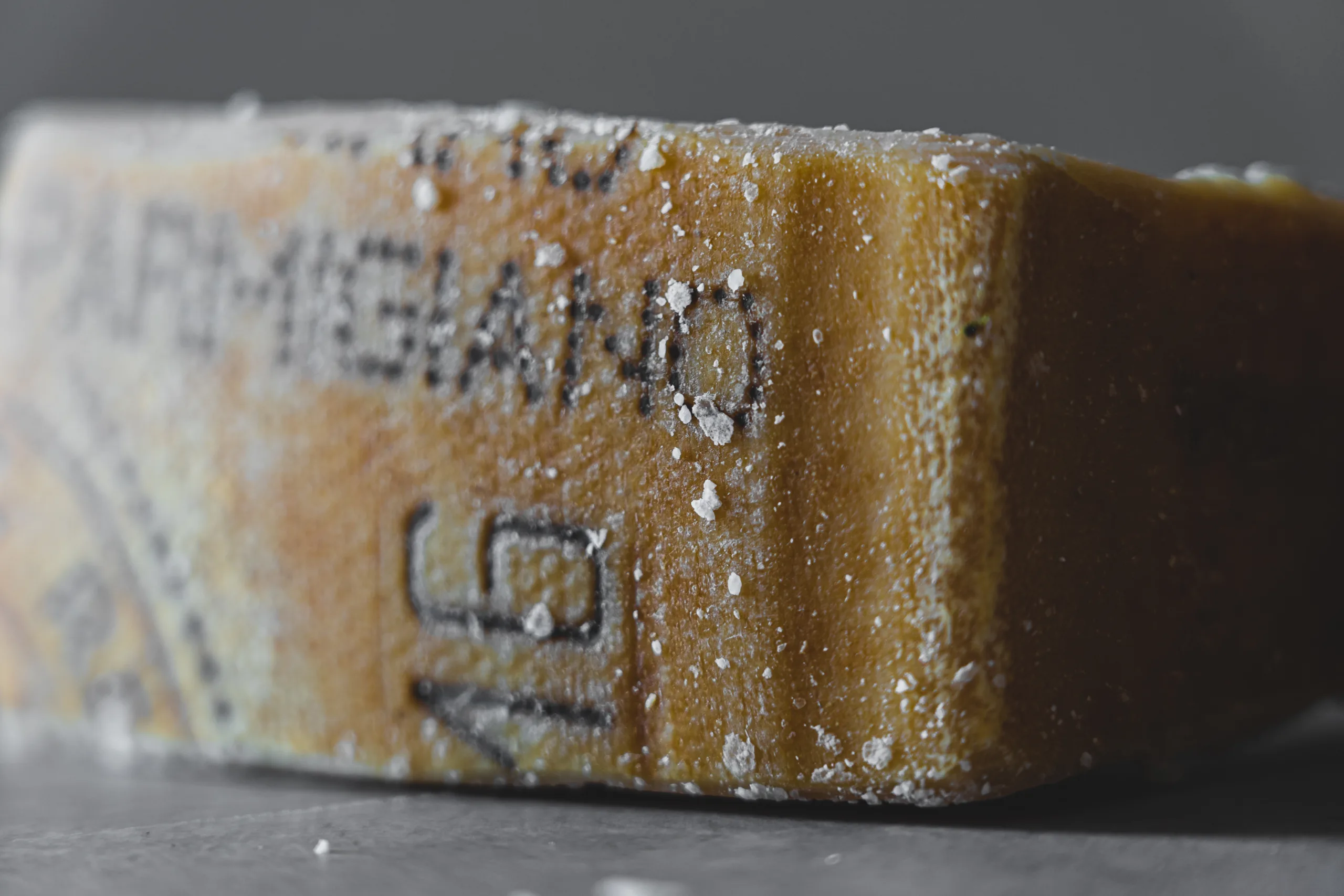Are you a cheese lover who’s been advised to go on a low FODMAP diet? If so, you’re probably wondering if aged cheese is still ok to eat. After all, cheese is such an important part of many delicious meals. Fortunately, aged cheeses can be consumed on a low FODMAP diet as long as certain guidelines are followed. In this article, we’ll look at how to determine if aged cheese is suitable for your diet and how to incorporate it into your meals.
Aged cheese is a type of cheese that has been aged for an extended period of time, usually several months to several years. This aging process gives aged cheese a distinct flavor and texture, making it a favorite among cheese lovers.
How Does Aged Cheese Affect IBS?
Aged cheese, such as cheddar and Parmesan, may be beneficial for people with Irritable Bowel Syndrome (IBS). Aged cheese contains probiotics, which may aid in digestion and help support the gut microbiome. Studies have also shown that the lactic acid bacteria found in aged cheese can reduce inflammation and improve symptoms of IBS. Aged cheese also has a lower lactose content than other types of cheese, making it easier to digest for those with lactose intolerance.
However, aged cheese is still high in fat and can be difficult to digest for some with IBS. It is important to eat aged cheese in moderation and consult a doctor or nutritionist about how much is safe for an individual’s diet and health needs. Some people may find that eating small amounts of aged cheese can help reduce their symptoms of IBS, while others may find it triggers their symptoms. It is important to experiment with different types of cheese to find what works best for each person’s digestive system.
In summary, aged cheese may be beneficial for people with IBS due to its probiotic content and lower lactose content. However, it is important to eat it in moderation and experiment with different types of cheese to find what works best for each person’s digestive system.
Can Aged Cheese be Consumed on a Low FODMAP Diet?
Aged cheese can be consumed on a low FODMAP diet, but it is important to pay attention to the type of cheese you are consuming. Generally, hard cheeses are lower in lactose, so they may be more suitable for those with sensitivities. Fresh cheeses, like ricotta and cream cheese, tend to have higher levels of lactose and should therefore be avoided. It is also important to keep an eye on portion size when consuming aged cheese, as too much can cause digestive discomfort and unwanted symptoms.
Click here to preview your posts with PRO themes ››
It is best to choose aged cheeses such as cheddar, gouda, parmesan and swiss that have been aged for at least 8 months. These types of cheeses have had time to break down the lactose naturally over time, making them easier to digest and less likely to cause any issues. It is also important to check the label of the cheese for added ingredients like garlic or onion which could trigger a reaction if consumed in large quantities.
In general, aged cheese can be enjoyed in moderation on a low FODMAP diet as long as it is carefully selected and consumed in small amounts. To get the most out of your low FODMAP diet, it’s important to pay attention to portion size and ingredient labels when selecting your aged cheese options.
Nutritional Benefits of Aged Cheese
Aged cheese is a type of cheese that has been aged for several months or longer. It is typically more expensive than regular cheese and has a more intense flavor. While aged cheese has many benefits, it also offers some nutritional benefits that may not be found in regular cheese.
Aged cheese is a good source of protein, with about 7-8 grams of protein per ounce. It is also high in calcium, phosphorus and vitamin B12. This makes it an excellent choice for people who are looking to increase their intake of these essential nutrients.
Aged cheese contains beneficial fatty acids, including conjugated linoleic acid (CLA). CLA has been linked to improved heart health, weight management and cancer prevention. In addition, aged cheeses are rich in zinc and magnesium which are important for bone health.
Aged cheeses also contain probiotics, which are beneficial bacteria that can help support the digestive system and boost immunity. Probiotics can help with digestion and alleviate symptoms of irritable bowel syndrome (IBS). They may also reduce inflammation in the body and improve overall gut health.
Finally, aged cheeses are low in carbohydrates and contain no added sugars or preservatives. This makes them a healthy choice for people who are looking to cut back on their sugar intake but still enjoy the taste of cheese.
Overall, aged cheese offers many nutritional benefits that make it a great addition to any diet. It is high in protein, calcium, phosphorus and vitamin B12 along with beneficial fatty acids such as CLA and probiotics that can help support gut health and immunity. In addition, it is low in carbohydrates and contains no added sugars or preservatives making it an ideal snack option for those looking to cut back on sugar intake while still enjoying the taste of cheesy goodness!
Types of Aged Cheeses Low FODMAP Friendly
Aged cheeses are a delicious addition to any meal, but if you follow a low FODMAP diet, you may need to be more mindful of the types of cheese you purchase. Fortunately, there are many aged cheeses that are low FODMAP friendly, including cheddar, gouda, swiss, blue cheese, brie and camembert.
Click here to preview your posts with PRO themes ››
Cheddar is an aged cheese made from cow’s milk and is a great choice for those following a low FODMAP diet. It has a sharp flavor and can be used in sandwiches, salads and sauces. Gouda is also an aged cow’s milk cheese with a mild flavor that pairs well with crackers or breads. Swiss cheese is made from cow’s milk and has a nutty flavor which makes it perfect for sandwiches or grilled cheese.
Blue cheese is made from cow’s milk and has a strong flavor that can range from mild to pungent depending on the variety. It pairs well with salads or can be crumbled over steaks or burgers. Brie and camembert are both soft cheeses made from cow’s milk and have a creamy texture with an earthy flavor. They make great additions to any charcuterie board or can be melted over vegetables as an accompaniment to meals.
No matter what type of aged cheese you’re looking for, there are plenty of low FODMAP options available for those following this diet. From cheddar to blue cheese, you’re sure to find something delicious that fits your needs!

Incorporating Low FODMAP Aged Cheeses Into Your Diet
Aged cheeses are a delicious and nutritious addition to any diet, but can be difficult to incorporate for those following a low FODMAP diet. Fortunately, there are some aged cheeses that are low FODMAP friendly and can be enjoyed during the elimination phase of the diet.
The most common type of low FODMAP aged cheese is cheddar. Cheddar contains small amounts of lactose, but is considered low FODMAP in servings of 1 oz or 28 g per sitting. Other aged cheeses that are considered low FODMAP include Swiss, gouda and parmesan.
When incorporating aged cheeses into your diet, it’s important to keep portion sizes in mind as some types may contain higher levels of lactose than others. For example, blue cheese is not considered low FODMAP because it contains higher levels of lactose than other aged varieties.
A great way to incorporate aged cheeses into your diet is by adding them to salads or sandwiches. They can also be used as a topping for roasted vegetables or added to omelets for extra flavor and protein. To make sure you’re sticking to your daily limit of low FODMAP foods, try adding small amounts to dishes instead of whole slices or chunks.
When shopping for aged cheeses, it’s important to check the label for ingredients such as cream or milk solids that could contain higher levels of lactose. If you’re uncertain about a particular cheese, consult with your doctor or dietitian before consuming it.
Incorporating low FODMAP aged cheeses into your diet can be an enjoyable and healthy way to add flavor and nutrition without triggering symptoms related to irritable bowel syndrome (IBS). With careful portion control and ingredient checking, you can enjoy aged cheeses while following the low FODMAP approach with ease.
Click here to preview your posts with PRO themes ››
Potential Risks of Consuming High FODMAP Aged Cheeses
Aged cheeses can be a great source of nutrition and flavor, but they can also contain high levels of FODMAPs, which can be problematic for some people with digestive issues. FODMAPs are short-chain carbohydrates found in certain foods that can cause digestive distress, such as gas, bloating, and abdominal pain. High FODMAP aged cheeses may trigger symptoms in those who are sensitive to them.
In addition to the potential for triggering digestive symptoms, consuming high FODMAP aged cheeses may also increase the risk of other health problems. Some studies have linked high FODMAP diets to an increased risk of irritable bowel syndrome (IBS), Crohn’s disease, and other gastrointestinal issues. Additionally, eating too much cheese can lead to weight gain due to its high fat content.
For those who are sensitive to FODMAPs or have existing digestive issues, it is best to avoid or limit consumption of high FODMAP aged cheeses. Consuming smaller amounts more often is one strategy that may help reduce the risk of triggering symptoms. For those who do not have any sensitivity to FODMAPs, enjoying aged cheese in moderation is perfectly safe.
Can Eating Low FODMAP Aged Cheeses Help Manage Symptoms of IBS?
Yes, eating low FODMAP aged cheeses can help manage symptoms of irritable bowel syndrome (IBS). Aged cheeses are generally low in FODMAPs, which are short-chain carbohydrates that can trigger digestive issues. Aged cheeses are also easier to digest than other types of cheese, meaning they won’t put as much strain on the digestive system.
When choosing aged cheeses, it’s important to read labels carefully to make sure the cheese is low in lactose. Lactose is a FODMAP found in dairy products and can cause bloating, gas and other uncomfortable symptoms for those with IBS. Aged cheeses are usually low in lactose because the fermentation process breaks down much of the sugar.
It’s also important to buy aged cheeses from reputable sources, as some manufacturers may add fillers or other ingredients that could trigger IBS symptoms. Many aged cheeses are made with natural ingredients such as salt and enzymes, so look for labels that list these items as well.
Eating aged cheese in moderation is a great way to get some delicious flavor without triggering IBS flare-ups. It’s important to talk to your doctor or nutritionist before making any significant dietary changes if you have IBS, but including aged cheese as part of a balanced diet can help manage symptoms while still providing tasty meals.

Conclusion
In conclusion, aged cheese can be low FODMAP depending on the type of cheese and the amount consumed. Harder aged cheeses tend to have lower lactose levels than softer cheeses, making them a more suitable choice for people with IBS. Small amounts of cheese can also help reduce any unpleasant symptoms. If in doubt, it’s best to consult a dietitian for advice on what type and amount of cheese would be suitable for your particular situation.
Ultimately, incorporating aged cheese into a low FODMAP diet can be beneficial to those with IBS and other digestive conditions, as long as it is done in moderation and with the right types of cheeses.
By following these guidelines, you can enjoy delicious aged cheeses while also maintaining your health and well-being.

